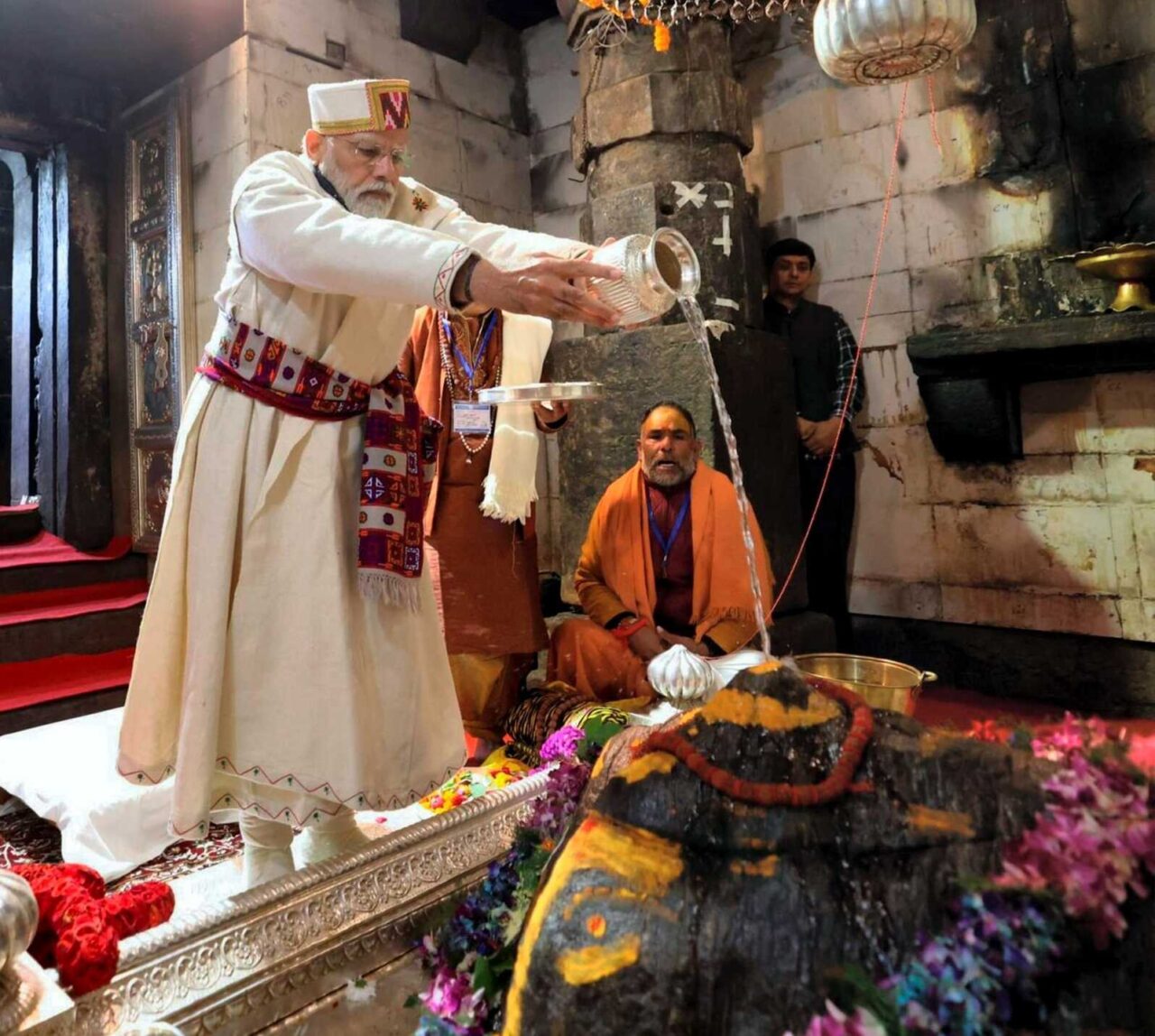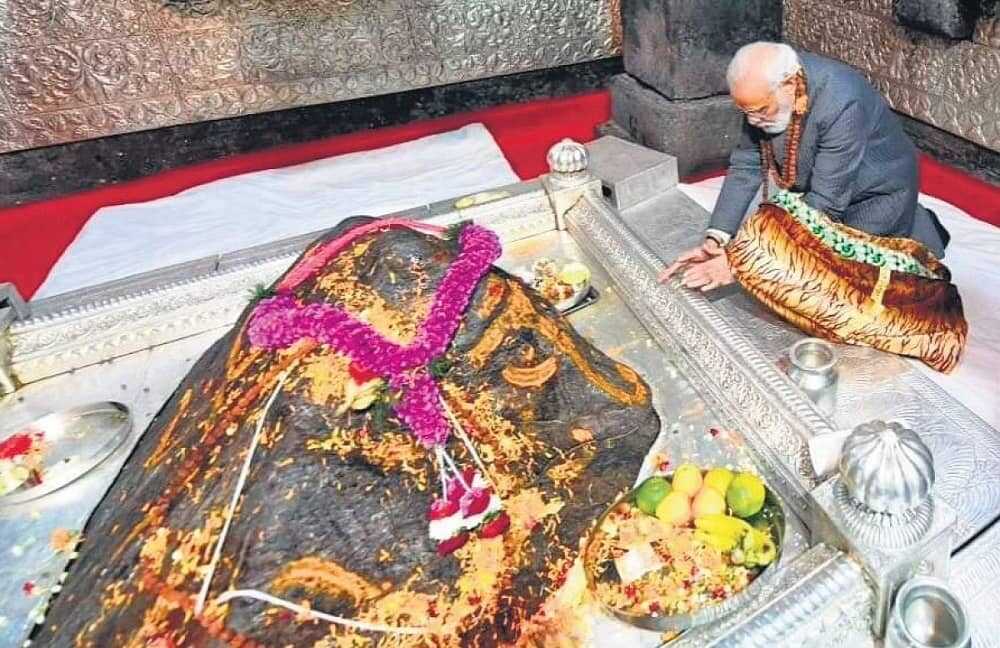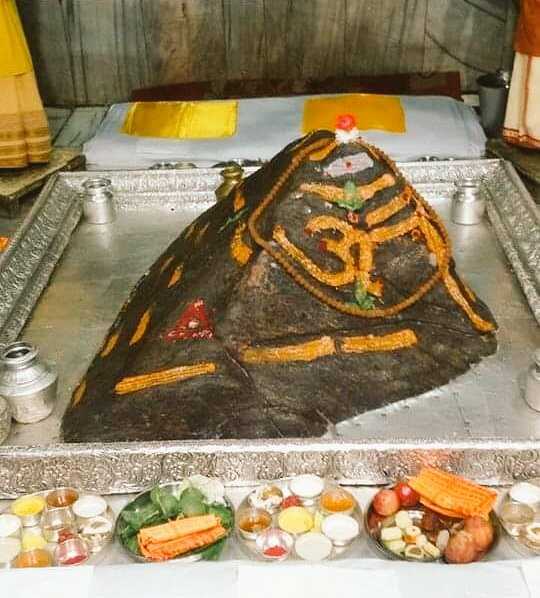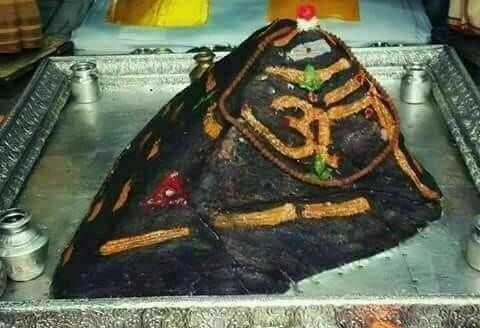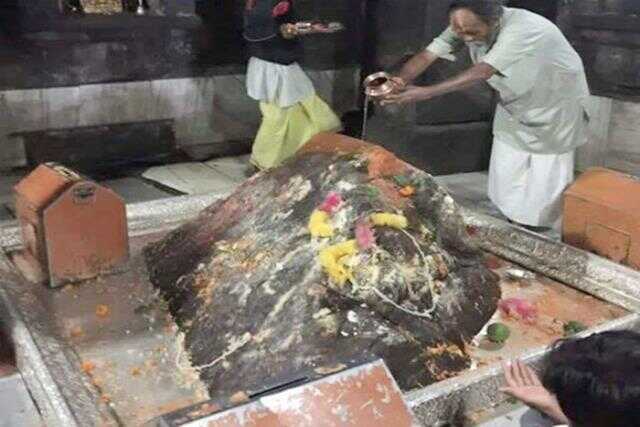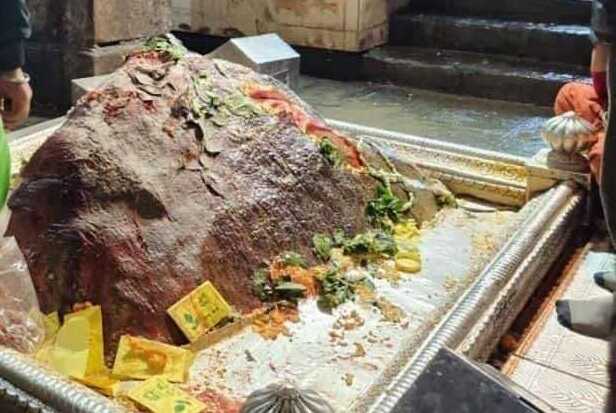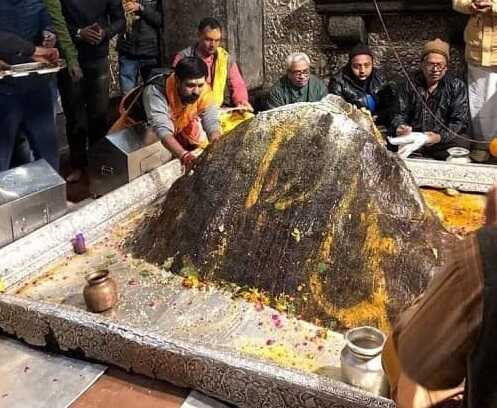The Kedarnath Shivling is the symbol of Lord Shiva in the Kedarnath Temple. Kedarnath is a Hindu temple located in the town of Kedarnath in the state of Uttarakhand in northern India. The temple is one of the twelve jyotirlingas, or sacred shrines, of Lord Shiva and is considered one of the holiest Hindu temples. The temple is located at an altitude of 3,583 meters above sea level in the Himalayas and is only accessible by a trek of about 14 kilometers from the nearest road head at Gaurikund.
Kedarnath Shivling (केदारनाथ शिवलिंग)
The main attraction of the temple is the lingam, or the symbol of Lord Shiva, which is made of black stone and is worshipped by devotees.
The lingam is believed to have been established by the Pandava brothers, the heroes of the Hindu epic Mahabharata, during their exile.
According to legend, the lingam was worshipped by the sage Narada, who had meditated upon it in the Kedarnath Temple. The temple also has a small shrine dedicated to Lord Ganesha, the elephant-headed god, who is considered to be the son of Lord Shiva.
The Kedarnath Temple is an important place of pilgrimage for Hindus, and thousands of devotees visit the temple every year, especially during the annual Kedarnath Yatra, which takes place in the months of April and May.
The temple is open to devotees from April to November, as the area is covered in snow during the winter months.
Plan Your Kedarnath Trip
- Kedarnath Itinerary Plan
- Kedarnath Trek (16 km)
- Kedarnath Jyotirlinga
- Best Time To Visit Kedarnath
- Panch Kedar Yatra Guide
Shape of Kedarnath Shivling
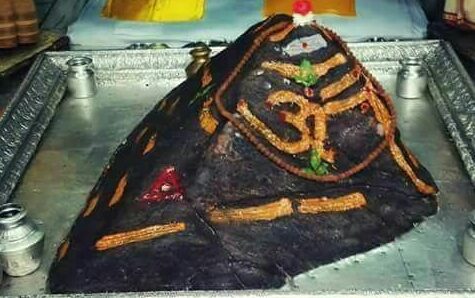
The Shiva Lingam of the Kedarnath temple is a triangle shape. and hence is unique among Shiva temples. which is placed in the sanctum sanctorum (Garbha Griha) of the temple.
The Kedarnath temple houses idols of Parvati, Lord Krishna, five Pandavas, and their wife Draupadi, Nandi, Veerabhadra, and other gods and goddesses along with the vehicle Nandi of Lord Shiva.
History of Kedarnath Mandir
According to Hindu mythology, the temple was built by the Pandava brothers, the heroes of the Hindu epic Mahabharata, during their exile.
The temple is mentioned in the Hindu scriptures, including the Skanda Purana and the Mahabharata, and is believed to have been established by the sage Narada, who had meditated upon a lingam (the symbol of Lord Shiva) in the Kedarnath Temple.
The Kedarnath Temple has a long and rich history, and it has been a place of pilgrimage for Hindus for centuries.
The temple has undergone several renovations and expansions over the years, and it has survived several natural disasters, including earthquakes and landslides.
A temple is an important place of worship for Hindus, and thousands of devotees visit the temple every year, especially during the annual Kedarnath Yatra, which takes place in the months of April and May.
History of Char Dham Temples
Who Established Kedarnath Shivling?
The lingam at the Kedarnath Temple is considered to be a self-manifested, or Swayambhu, lingam, which means that it is believed to have emerged spontaneously from the earth.
The lingam is worshipped by Hindus as a symbol of the divine, and it is believed to represent the absolute and the unmanifested. Hindus believe that by worshipping the lingam, they can attain spiritual enlightenment and liberation from the cycle of birth and death.
According to legend, the lingam was worshipped by the sage Narada, who had meditated upon it in the Kedarnath Temple.
The Kedarnath Temple is an important place of pilgrimage for Hindus, and thousands of devotees visit the temple every year, especially during the annual Kedarnath Yatra, which takes place in the months of April and May.
The temple is open to devotees from April to November, as the area is covered in snow during the winter months.
Don’t forget to check out these KEDARNATH products FOR YOUR POOJA GHAR
Kedarnath Temple Wooden Handicraft
Explore Kedarnath
- History of Kedarnath
- Weather in Kedarnath
- Hotels in Kedarnath
- Meditation Cave in Kedarnath
- 21 Facts About Kedarnath
- Kedarnath Yatra 2023 Guide
Kedarnath Shiv-Ling Real Photos
